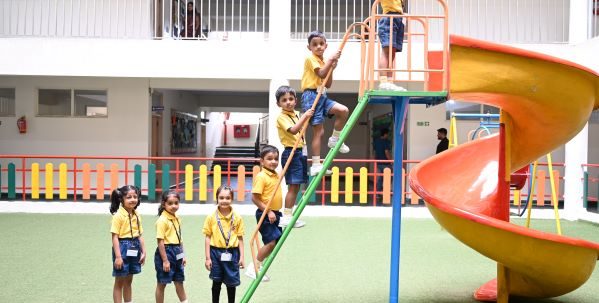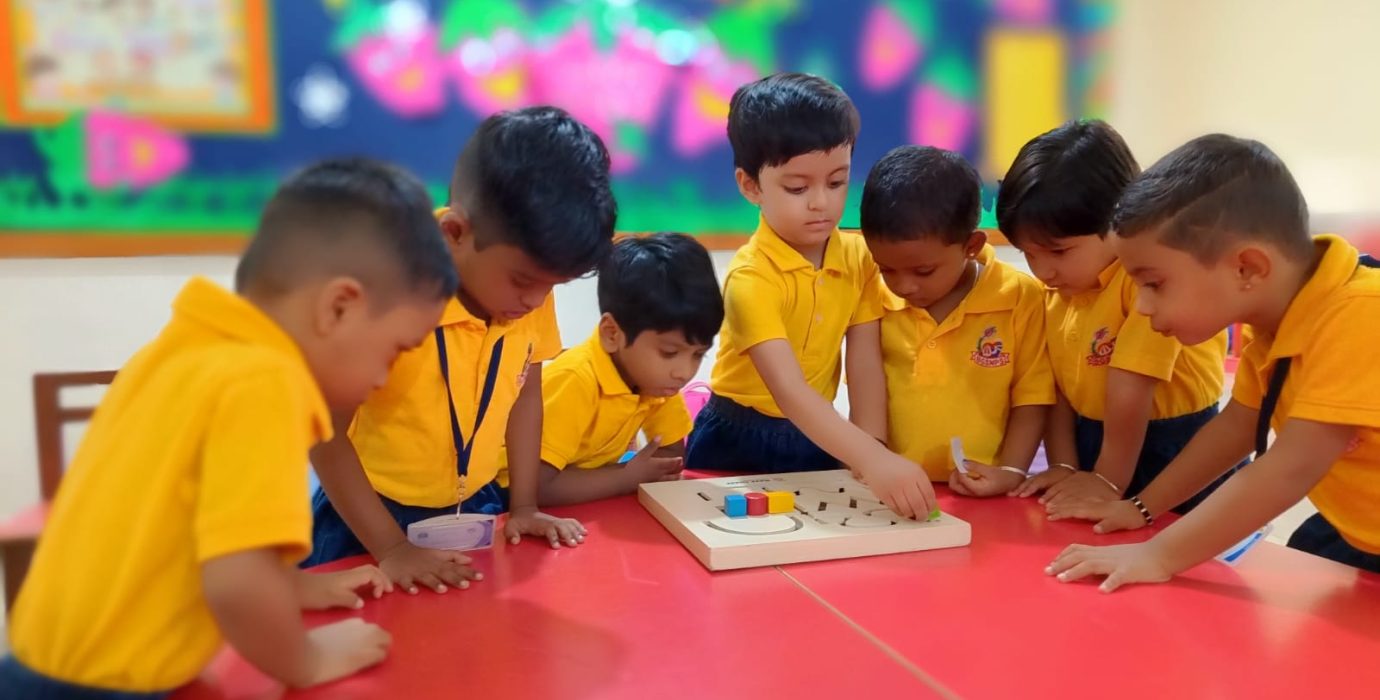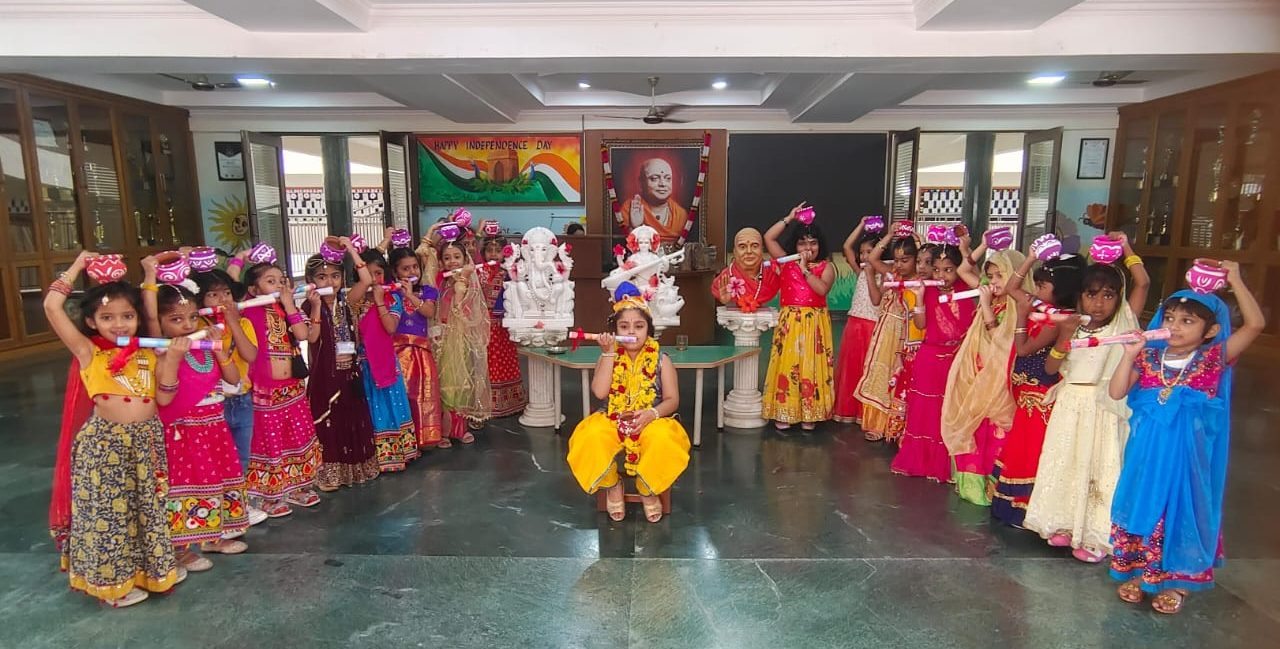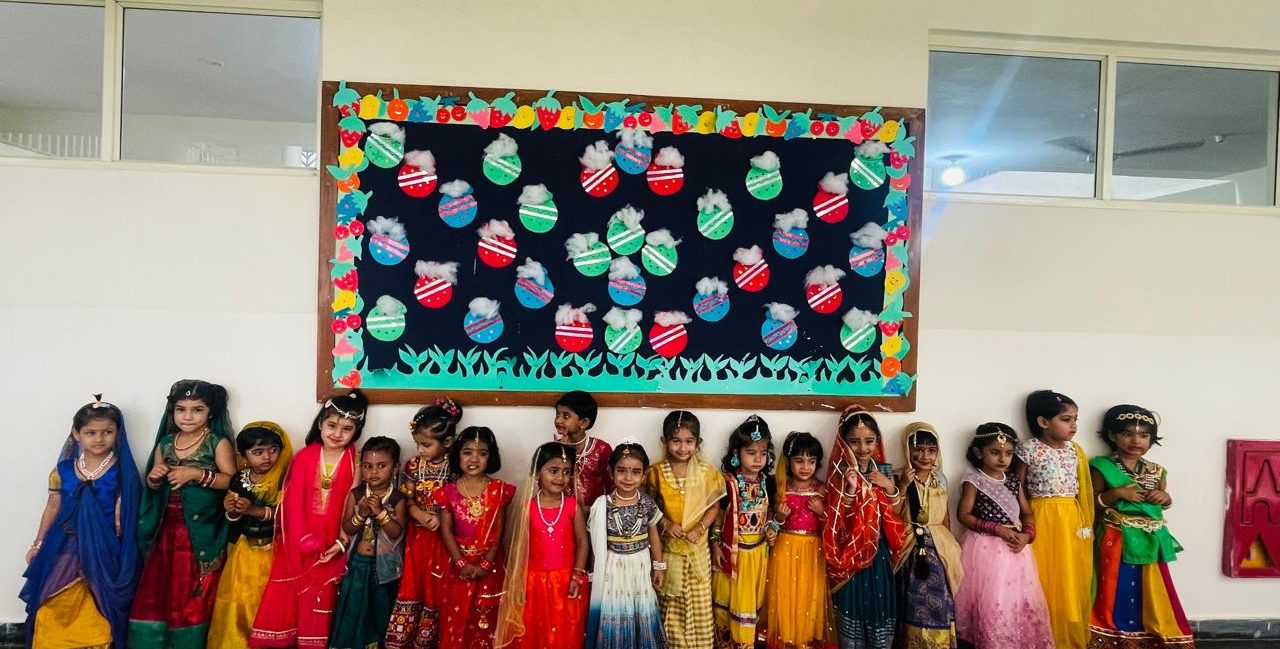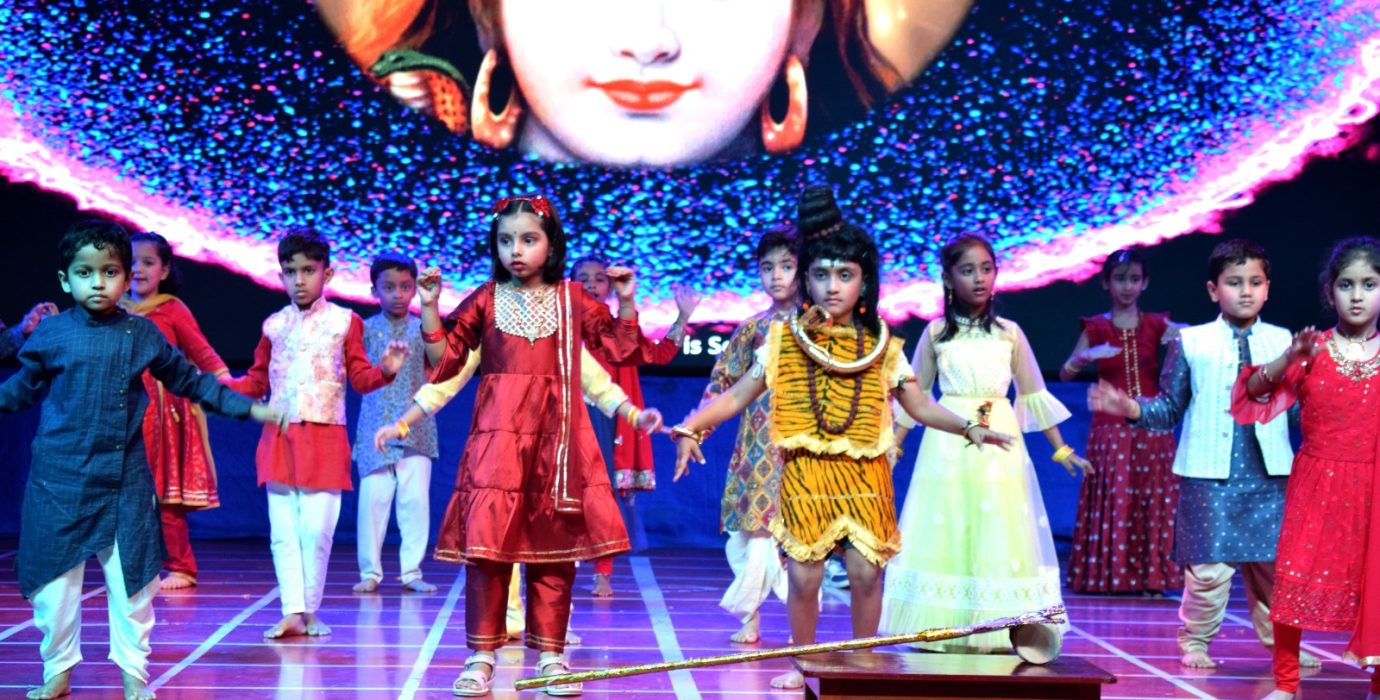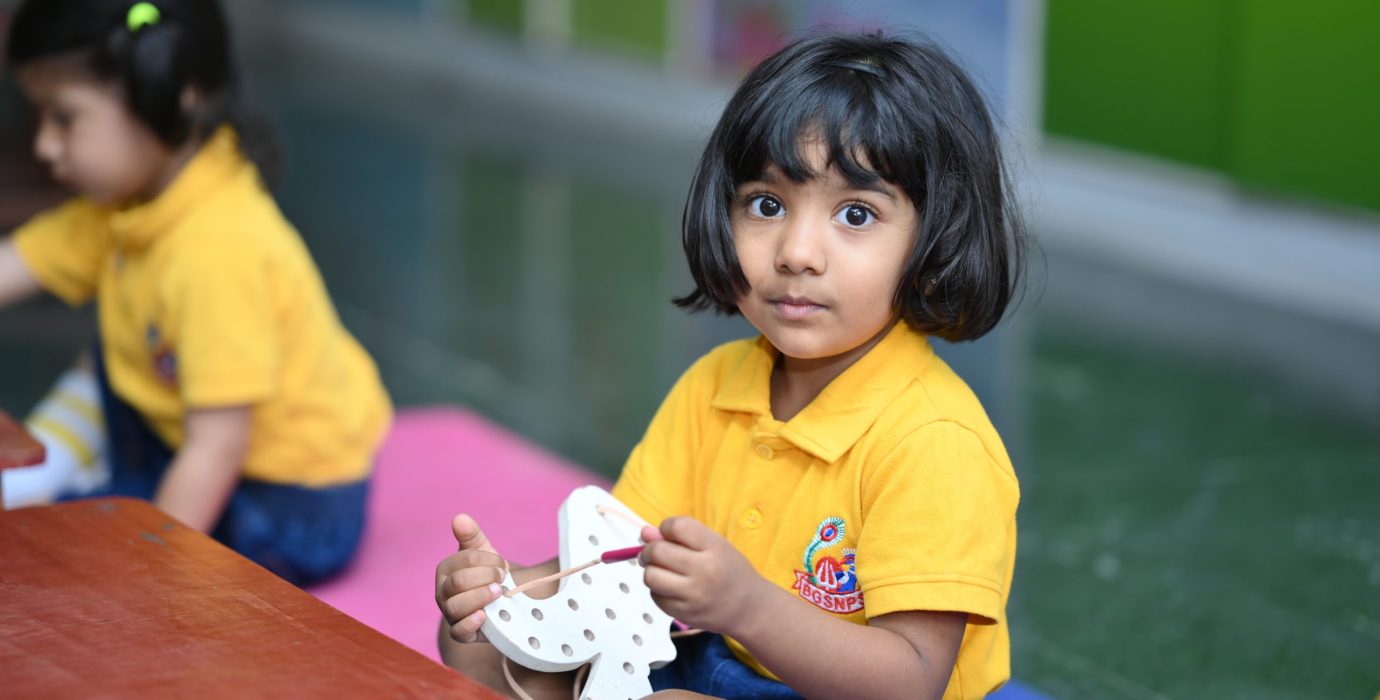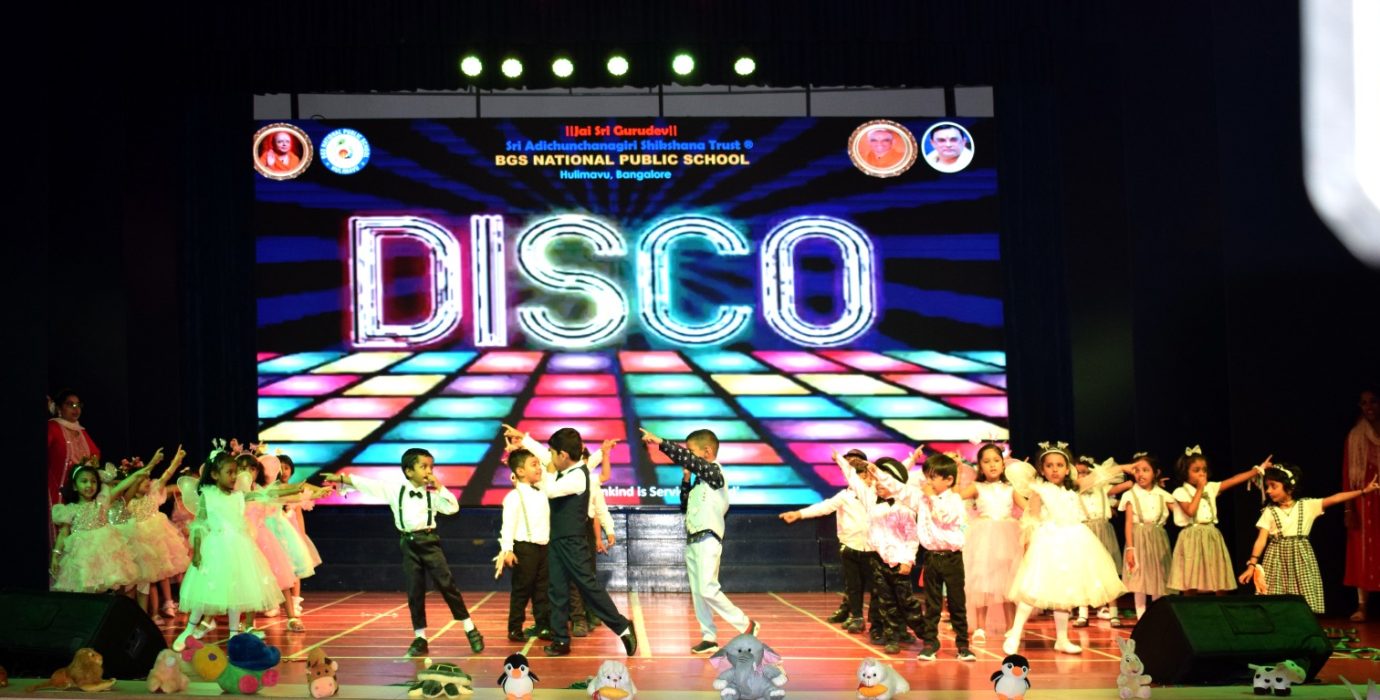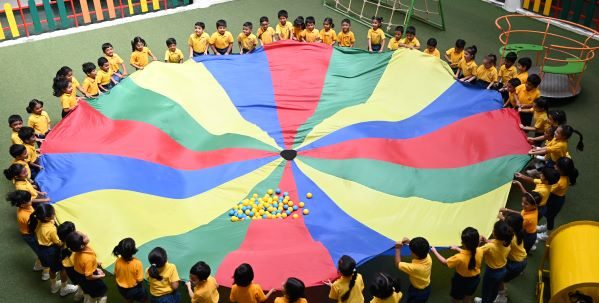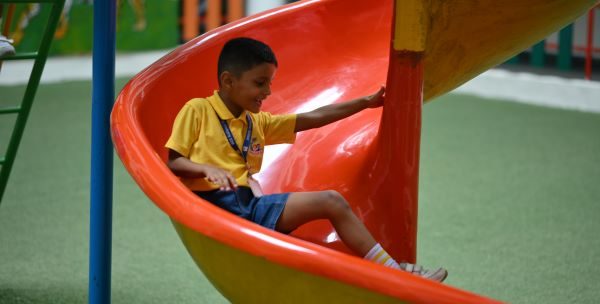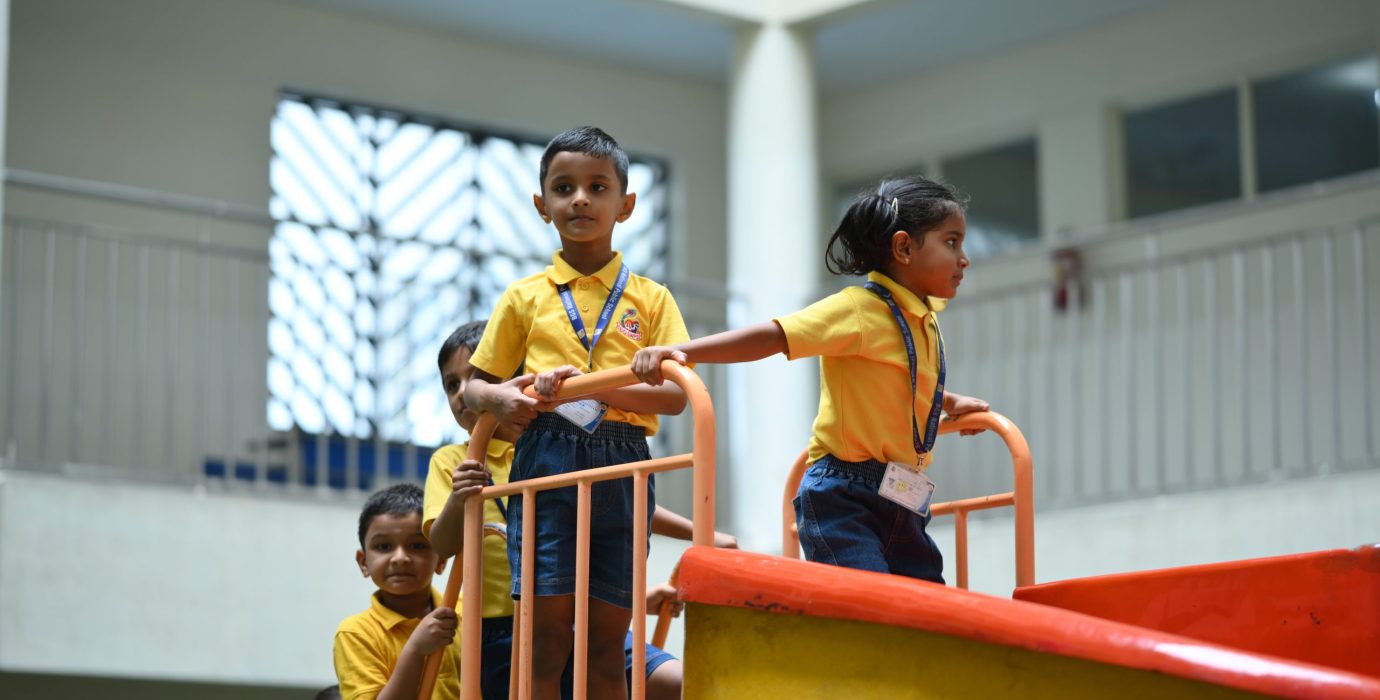“Give me patience when little hands Tug at me with small demands…. Give me gentle words and smiling eyes, And keep my lips from sharp replies So that in years to come when my school is still, Beautiful memories its rooms may fill.”
At BGSNPS Kindergarten, we believe that “Childhood is the most beautiful phase in a person’s life,” and we are dedicated to making it special and memorable for every child under our care.
Optimal Learning Environment..
The core philosophy of our curriculum is skill acquisition, and we foster a stress-free environment that allows each child to explore and learn at their own pace and according to their own preferences.
We believe that “learning by doing” is the best way to challenge the bright minds of today’s children. Each day at BGSNPS is packed with fun and exciting activities that engage and develop our children’s skills.
Play-Based Curriculum:
The play-based curriculum is an approach that emphasizes learning through play. This fosters natural curiosity and creativity allowing children to explore and engage their learning environment.
Theme based activities:
The framework of the curriculum focuses on Integrated Thematic Approach skill based play way method with hands on activity. Integrated subjects like science, social science and art encourages students to explore concepts, fosters creativity, develop social and problem-solving skills.
Curriculum aligned with National Education Policy:
The curriculum in the Kindergarten under the guidance of National Education Policy(NEP) emphasizes on the development of literacy and numeracy skills through play based method. As per the NEP the school provides a broad range of opportunities to young learners like involving families, opportunities for group work and participation in annual events such as cultural festivals and sports day.
Monitoring progress:
Students receive a comprehensive Holistic Progress Card reflecting their academic achievements, participation in activities and personal development. The report card highlights comprehensive assessment, offering insights into both strengths and areas for improvement.
Our classrooms- An inviting space
The classrooms reflect a warm atmosphere with soft round cornered furniture in bright colors and decorations. Children can explore various learning zones for different activities like reading corners, art station and sensory play area. They can choose activities based on their interest and related themes.
Co-curricular activities:
Kindergarten activities promote exploration and active participation through hands on activities. Creative art projects using various materials help develop fine motor skills and self-expression. Rhymes, storytelling and dramatic plays are encouraged which help in developing imagination and language.
Free Play, indoor play, music and dance are also an integral part of our co-curricular activities. We offer our children ample opportunities to build confidence through a variety of programs, stage performances, and exhibitions held throughout the year.
Field trips to farms and parks are arranged which promotes real world learning experience and help students connect classroom concepts to their environment.
Infrastructure:
The infrastructure in the Kindergarten is designed to create a safe, engaging and stimulating environment for young learners.
Classrooms are spacious, well lit, equipped with smart boards, age appropriate furniture and built in washrooms to facilitate the teaching and learning process.
The Montessori room has designated areas like sensory play, reading corner and an art station which encourages diverse activities and interactions.
Safe outdoor play areas are equipped with play structure that promotes development of gross motor.
The Golden Triangle
The Golden Triangle represents the partnership between parents, teachers, and children, where both parents and teachers collaborate and work towards the progress of the child and promote the child’s all-rounded development
Our Dedicated Team:
Training programs are conducted for the teachers to understand a child’s emotional, social and cognitive needs. Early childhood educational training programs are administered to facilitate and design age-appropriate lesson plans and activities for supporting children with different learning abilities.
“Children must be taught HOW TO THINK and not WHAT TO THINK”.

